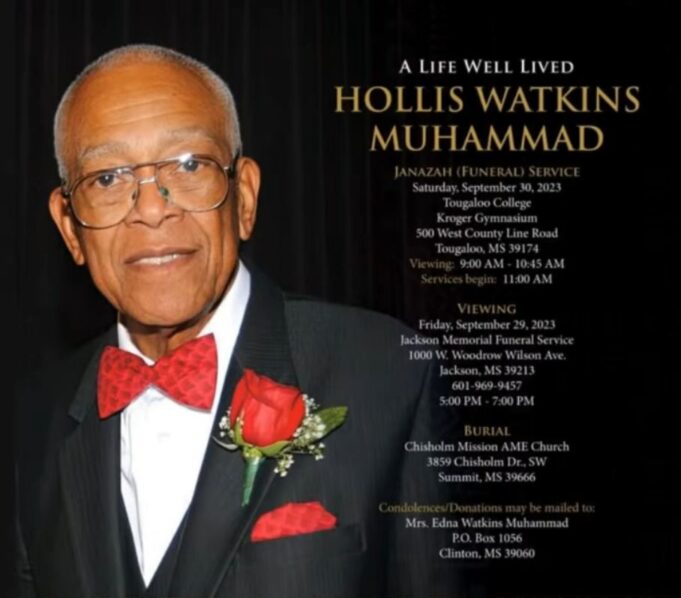The civil rights movement in the United States is filled with influential figures who fought for justice and equality. One of these figures was Hollis Watkins Muhammad, a singer, organizer, and activist who played a crucial role in the struggle for civil rights.
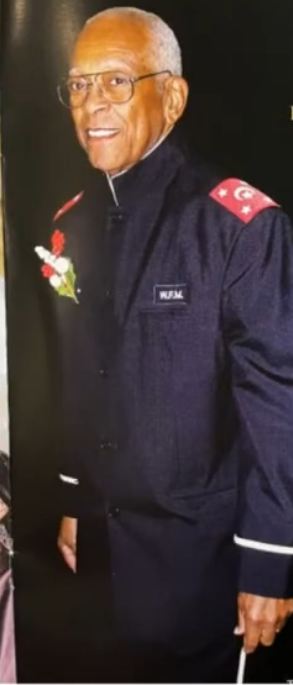
Mr. Watkins Muhammad was a trailblazer who advocated for change and fought against inequality and the long, ugly history of racial disparities in the United States. He was remembered for his tireless activism and work during his janazah (funeral) and memorial service held on September 30.
The 82-year-old civil rights icon peacefully passed away at his home on September 20, with his wife, Edna Watkins Muhammad, by his side.
The Nation of Islam has been and continues to be one of the most influential Black movements in the U.S. and abroad. With a legacy that has nearly a century, the Nation of Islam, led by its Eternal Leader, the Honorable Elijah Muhammad, has helped to shape the lives of many prominent Blacks, including Minister Louis Farrakhan, Malcolm X, Muhammad Ali, and many others.
Mr. Hollis Watkins Muhammad, although lesser known, played a crucial role in the civil rights movement and emerged as a prominent figure within the Nation of Islam.
His janazah, which was streamed online, took place at Tougaloo College Kroger Coliseum in Tougaloo, Mississippi, and was filled with family, friends, fellow activists, politicians and community members from all over the country who came to pay their respects. Student Minister Abram Muhammad of Mosque No. 78 in Jackson, Mississippi, officiated the service.
Early life and activism
Born Hollis Watkins on July 29, 1941, in Lincoln County, Mississippi, he was the youngest of 12 children. Coming from a sharecropping family, they managed to purchase a farm through President Franklin D. Roosevelt’s New Deal loan program. Hollis’s journey continued as he graduated from the segregated Lincoln County Training School in 1960. Later, he ventured into higher education at Tougaloo College where he contributed to political activism while earning credits toward his degree through the work-study program.
He grew up in a deeply segregated society where racism was pervasive. As a teenager, he became active in the civil rights movement, joining the Student Nonviolent Coordinating Committee (SNCC) and participating in voter registration drives. In 1963, he helped to organize the Freedom Summer campaign, which aimed to register Black voters in the South.
His activism led to numerous arrests and confrontations with the police, but he remained committed to the cause of justice. On July 29, 1961, Mr. Watkin-Muhammad and Curtis Hayes, a fellow 18-year-old attending SNCC-led nonviolent direct action workshops, sat in at the local Woolworth’s in McComb, Miss. This sit-in was the first action of its kind in the area and jumpstarted the nonviolent movement in Pike County.
Music and culture
Mr. Watkins Muhammad was also a gifted singer and songwriter. He used music as a tool for activism, blending his passion for music with his commitment to social change. In the 1960s and 1970s, he formed the group, The Mississippi Civil Rights Singers, which traveled around the country performing protest songs. His music helped to inspire and galvanize people in the struggle for civil rights.
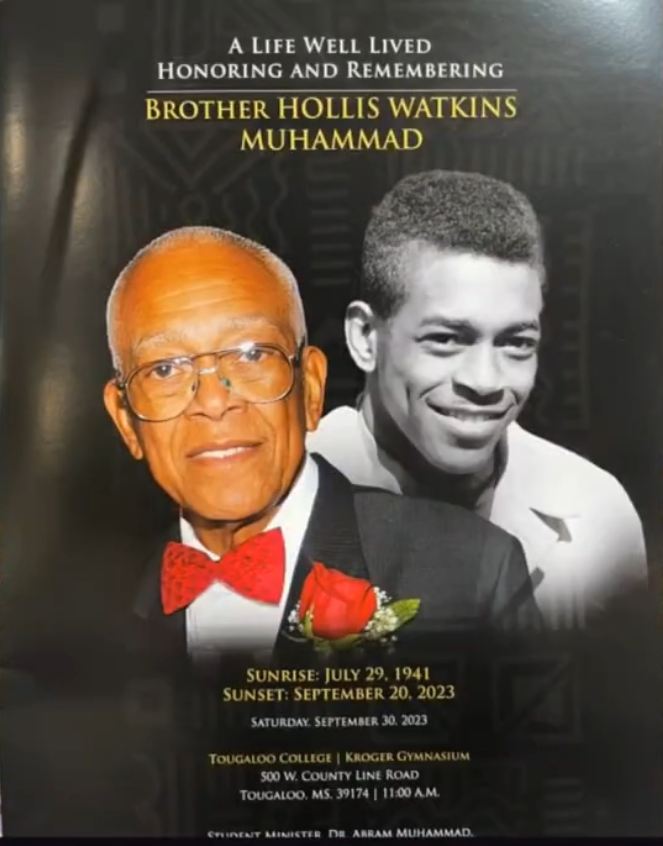
Brenda Hyde, current deputy director at Southern Echo, reflected on his musical impact in a recent article written by Meridith Colemen McGee. “Hollis Watkins Muhammad was also a Civil Rights Movement singer who inspired people to risk their jobs and lives to change the ugly world in which they lived. He learned freedom songs as a teen and intentionally passed these songs on to many,” said Ms. Hyde, according to the article.
“Muhammad continued to teach movement songs well into his late 70s. I remember how he kept the songs alive when I was a community organizer for Southern Echo in the early 2000s.” Ms. Hyde remembers the lyrics, “Ain’t scared of nobody … cause I want my freedom,” and “Keep your eyes on the prize,” as songs that she and Southern Echo trainees loved singing.
Through his ingenious use of music as a tool for activism, he exemplifies art and culture’s profound impact in igniting transformative change.
A fearless advocate and example
Even after passing the Civil Rights Act and other landmark legislation, Mr. Watkins Muhammad remained active in the fight for justice. He worked on issues such as education reform, economic justice, and environmental justice. He believed that the struggle for civil rights was ongoing and that there was still much work to do to achieve true equality.
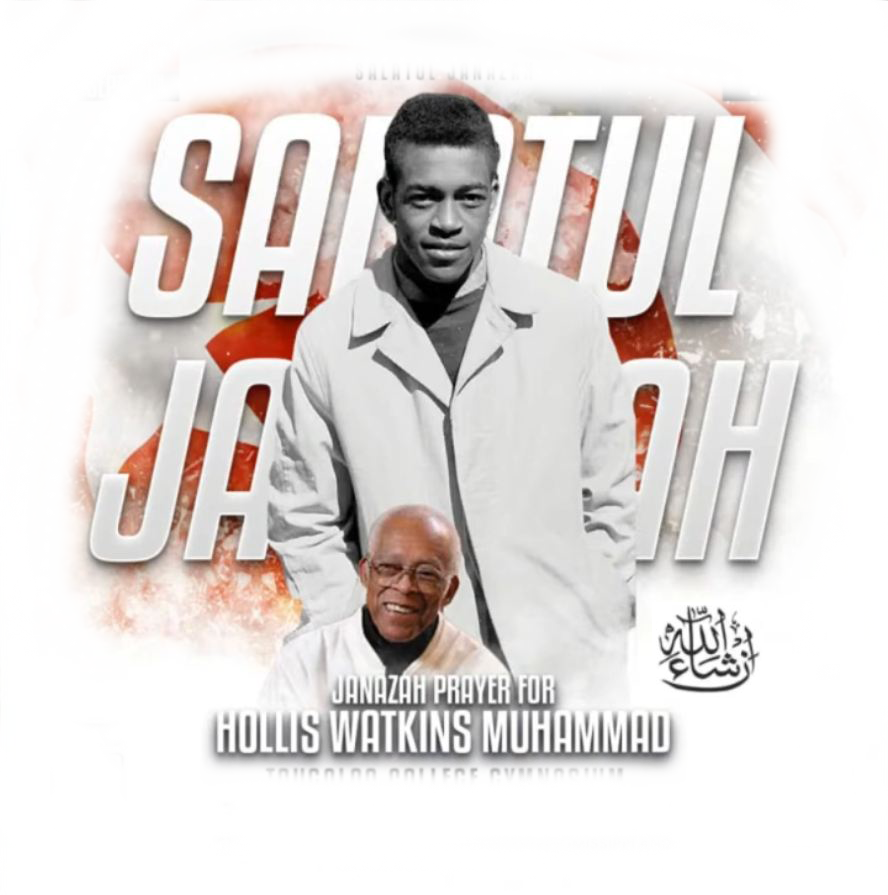
He continued to speak out and organize throughout his life, inspiring a new generation of activists. He founded Southern Echo, a group that supports other grass-roots organizations in Mississippi. He also founded the Mississippi Veterans of the Civil Rights Movement.
Myra Bryant, who collaborated closely with Mr. Watkins Muhammad at the Mississippi Association of Cooperatives in the late 1980s, described him as a fearless advocate for the most vulnerable members of society, tirelessly fighting for social and economic justice. “He was there for me during my darkest moments,” she reflected.
Student Minister Abram Muhammad told The Final Call that Brother Hollis Watkins Muhammad was an individual who deeply loved and believed in the teachings of the Honorable Elijah Muhammad through the example of Minister Farrakhan.
“Brother Hollis conducted himself in a way that reflected this belief, treating everyone he encountered as an individual, regardless of race, class, creed, color, or station in life. This made him a remarkable person, loved and respected not only in Mississippi but throughout the entire country,” he said.
“People from far and wide would travel to spend time with Brother Hollis, seeking his guidance, wisdom, and life stories. He played a significant role in shaping the lives of others, connecting them with the right path, and empowering them to take on leadership roles. He always credited the Honorable Minister Louis Farrakhan, regardless of whether the person he was helping was Black or White,” Student Minister Abram shared.
“Brother Hollis was not just an instrument. He was the chief instrument guiding people toward the right choices, mindset, and principled leadership. His impact extended to influential figures like Congressman Benny Thompson, President Derrick Johnson of the NAACP, and countless others involved in politics and local organizing committees,” Student Minister Abram Muhammad continued.
“Through his words and deeds, Brother Hollis demonstrated the power of leadership based on principles. He was an inspiring figure, leaving a lasting legacy of unity and empowerment.”
Student Minister Abram Muhammad shared that Hollis Watkins Muhammad became a registered member of the Nation of Islam in 1970 under the Honorable Elijah Muhammad and that he played a crucial role in overseeing the Nation’s farms in Alabama. He was also responsible for reporting conditions and happenings to the Honorable Elijah Muhammad, but Brother Hollis wasn’t confined to the farm.
“He traveled nationwide, working with agriculture and collaborating with other Black organizations on behalf of the Nation of Islam during the era of the Most Honorable Elijah Muhammad,” Student Minister Abram stated.
“Upon hearing the news, he wasted no time returning to the Nation of Islam under the leadership of the Honorable Minister Louis Farrakhan in ‘79. Excitement and potential filled the air during this growth and opportunity for the Nation of Islam. It was right in its infancy,” he added.
“I was just on a quest to find the answers to why White people could get away with all of this, and we had to treat White people this way, and they could go here, and we couldn’t go there, and all of us are supposed to be treated equal,” Mr.Watkins Muhammad said in a 2010 interview with the University of North Carolina Greensboro for a series on “Unsung Heroes of the Civil Rights Movement.”
He found his answer in the Teachings of the Most Honorable Elijah Muhammad. Student Minister Abram Muhammad stated that Brother Hollis remained faithful to the Teachings for the remainder of his life.
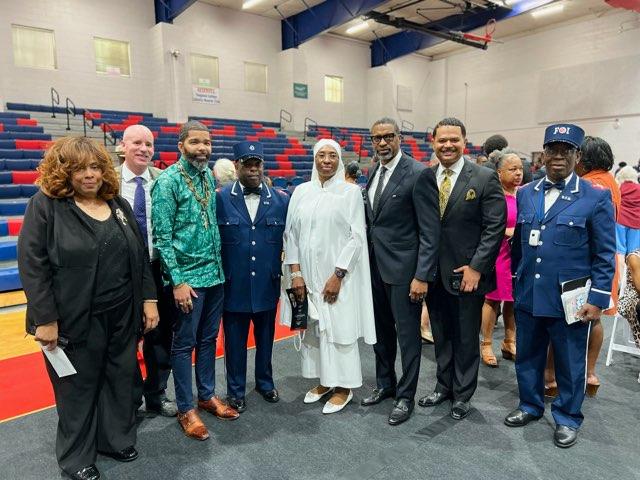
A lasting legacy
Hollis Watkins Muhammad leaves behind a powerful legacy. Student Minister Demetric Muhammad of Mosque No. 55 in Memphis attended the memorial service and janazah. He shared with The Final Call his perspective on the impact of a remarkable man. Student Minister Demetric Muhammad is a former Mississippi resident who was acquainted with Mr. Wakins Muhammad as a teenager.
“Hollis Watkins Muhammad embodies the convergence of the Nation of Islam and the civil rights movement like no other. He played a pivotal role in both, as seen by the diverse individuals at his funeral,” he said.
“At the janazah, people of different races, religions, and backgrounds came together to pay their respects. It is worth studying his life because he was a devoted follower of the Honorable Minister Louis Farrakhan and the Honorable Elijah Muhammad.”
Those present to pay their respects at the service included: Derrick Johnson, President and CEO of NAACP, and Jackson Mayor Chokwe Antar Lumumba. “This gathering demonstrated that followers of the Honorable Elijah Muhammad, especially those under Minister Farrakhan’s leadership, are well-equipped to lead in America. They possess the qualities necessary to touch the hearts and minds of people beyond their community,” Student Minister Demetric Muhammad stated.
“What made Brother Hollis truly magnetic was his character, integrity, passion for truth, and commitment to change. His ability to transition from the civil rights movement to the Nation of Islam revealed his sincere motivation and pure heart. His allegiance was always to the betterment of Black people, regardless of the ideology or path he chose.”
He continued, “In a world where impure intentions prevail, Brother Hollis stood out as a man of unwavering conviction. His unwavering focus on uplifting the Black community was admirable, whether it meant supporting the NAACP, voting, or ultimately embracing Islam as the solution. His life serves as a reminder of the rarity of pure-hearted individuals in today’s society. As we navigate these challenging times, let us all strive to embody the same dedication and purity as Brother Hollis did.”
The legacy of Hollis Watkins Muhammad holds many lessons. Student Minister Abram Muhammad marveled at the various relationships the elder statesman developed over the years.
“He had connections all over the place, I’m telling you. And it wasn’t just some ordinary kind of connection, especially not in Mississippi or any political organization for that matter. No, this guy was connected, man. … I mean, he’s like a giant, you know? And I can’t stress enough how much love and respect people had for him. He could walk into the state capitol during the General Assembly, and everyone would stop and listen. We’re talking about Mississippi, man, the heart of it all. Brother, this man was something special.”
Student Minister Demetric Muhammad agreed. “His impact on history and his ability to debunk myths just blows my mind. You see, there are lies that the enemy has spread, trying to pit the Nation of Islam against the civil rights movement. Can you believe that? But Brother Hollis shattered those lies. He was a man of dual citizenship; you know what I mean? He was a force to be reckoned with, surrounded by legendary figures like elected officials and police chiefs. His jananza was like a hero’s homegoing, where greatness lived.”
Brother Hollis Watkins Muhammad will be fondly remembered by his cherished family: his wife, Sister Edna Watkins Muhammad; his children, John Watkins, Hollis Watkins Jr., Donna Spearman, Denise Thompson-Hogan, James Brown Jr., Kimberly Brown, Stacy Brown, Zurifah Muhammad, William Flanagan, Nicole Flanagan; his goddaughter, Deborah Dodd; and his sister, Jeweline Berry. He also leaves behind 24 grandchildren, 30 great-grandchildren, as well as numerous nieces, nephews, cousins, and special friends.












